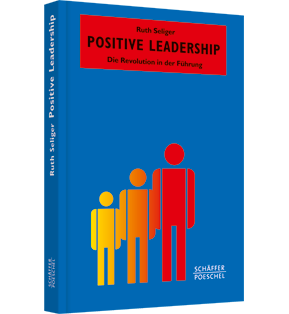Ruth Seliger erläutert in ihrem Buch die Grundlagen dieses neuen Führungsansatzes, gibt Einblicke in ihre Beratungspraxis und liefert Instrumente, die sofort angewendet werden können.
2014, Schäffer-Poeschel Verlag, ISBN 978-3-7910-3267-2
Positive Leadership ist ein revolutionäres Verständnis von Führung, in dem systemisches Denken mit Erkenntnissen aus der Psychologie der positiven Emotionen, der Gehirnforschung und der modernen Organisationsforschung integriert werden. Zugleich ist Positive Leadership ein erprobtes Instrumentarium, mit dem Führung in Organisationen wirkungsvoller und zugleich leichter wird. Das neue Buch bietet neben den theoretischen Grundlagen viele Instrumente und zahlreiche konkrete Anwendungsbeispiele aus der Praxis.


